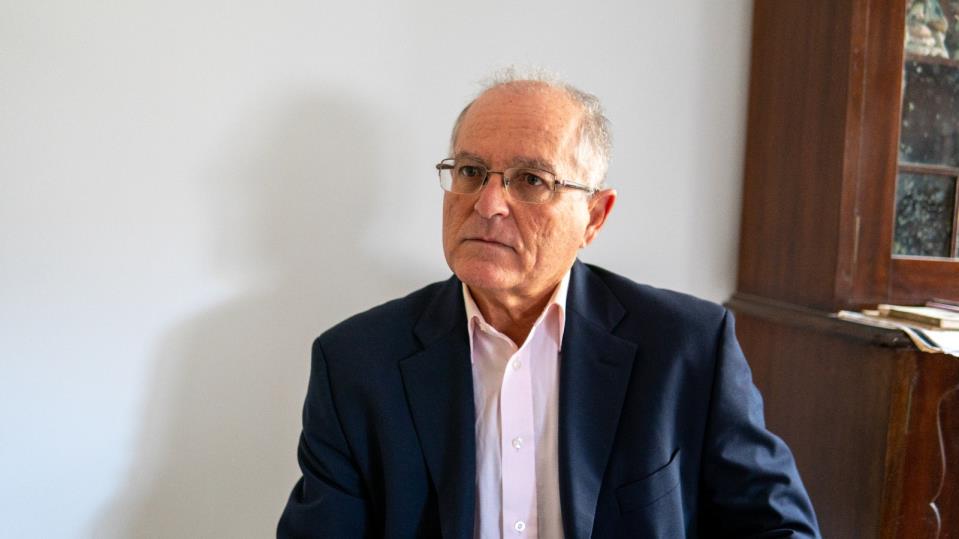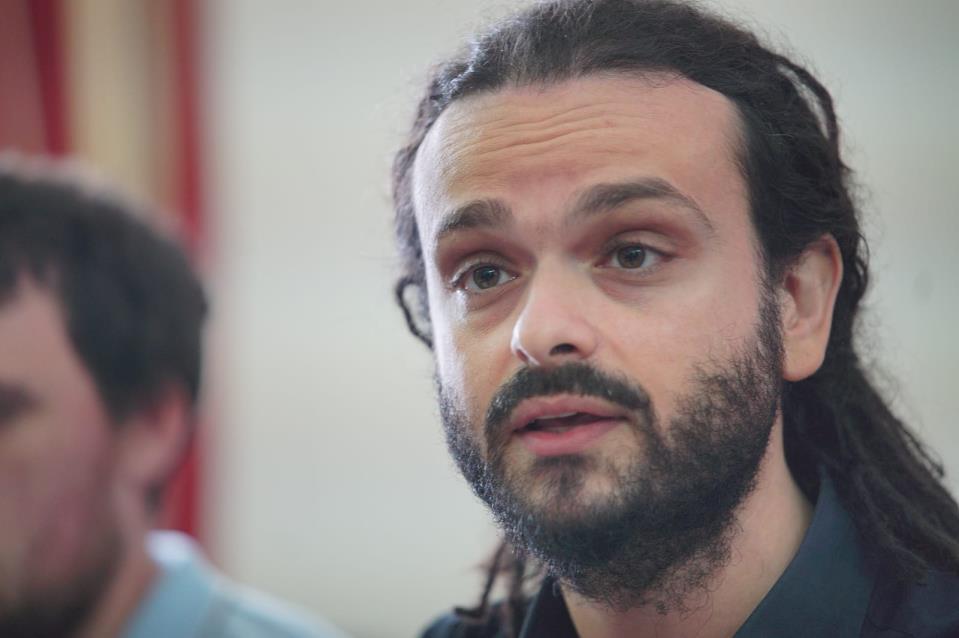Environmentalists have spoken up and accused developers of doing whatever they want because they have control over the policies being passed.
When contacted, independent election candidate Arnold Cassola said that “developers have politicians in their pockets”.
“They think because they have become millionaires, they own the country and they own politicians. Unfortunately, they do, but their decisions are there for us and for all our future generations to suffer eternally,” he said.
Three environmentalists, Cassola, Moviment Graffiti’s Andre Callus and the Coordinator of Flimkien Ghal Ambjent Ahjar, Astrid Vella spoke to The Malta Independent on Sunday following an interview with the president of the Malta Developers Association (MDA) Michael Stivala, which was published last week.
During the interview Stivala spoke very highly about the significant role of development to strengthen Malta’s economy. He said that development will be sustainable moving forward and he defended developers as they are just investors following the rules.

Arnold Cassola
You cannot blame developers, we are just investors
Stivala defended developers by saying that the “absolute majority” of developers follow policies and regulations. He also said that one of the reasons behind the poor aesthetic of buildings is that the policies do not allow architects to express their talent.
“Makes me laugh, I cannot stand the hypocrisy of these people,” Cassola said.
“First developers have the politicians in their pockets, they have the laws tailor-made to suit their interests by these politicians and then they blame the authorities for admitting permits,” he said.
He said that in Malta government is in the pockets of developers who are pouring hundreds of thousands of funds into the two political parties.
Then the planning laws are changed to suit these developers to give them more possibilities of building anywhere and everywhere. Then they have the cheek to say, “it's not us, it's the law that allows it”, he said.
“This is a big farce and they should stop putting blame on the structures which they themselves have indirectly commissioned,” he added.
“It is clear that developers are doing whatever they want,” Callus said.
Callus added that there are some developers and businessmen who have close ties to Maltese politicians who have an influence over the regulations implemented.
“The problem isn’t that they follow the regulations, the point is that they make the regulations,” he said.
His point was that the bad policies in place are there because the developers and the lobby of the developers wanted them like this, to “enable unrestrained development”.
He explained that the main reason behind these ugly aesthetics is that when a place is being designed, the only guiding factor is the maximisation of profit.
“In one place they will pack as many apartments as possible, to make the most profit,” he said.
He mentioned places like Sannat, Qala, Nadur and Balzan that have been exploited overnight with the development of hundreds of apartments.
“As regards developers complying with policies, we need to go no further than the Annex II policy which has manipulated building heights in order to allow developers to build two or more extra floors in violation of the local plans,” Vella said.
She said that hotel developers are being granted hotels in purely residential areas against policy.
“The list is endless, the policy’s limitations on buildings have been flouted repeatedly,” she said.
When discussing the architects’ role in poor aesthetics Cassola said that there are architects who are considered to have “no self-respect”.
He expressed his respect for the architects who know the history and culture of Malta and try to blend in the cultural-historical heritage in their designs. The ones he does not respect are the ones who are ready to do anything to maximise profit.
“That is the prostitutionalisation of architects,” he said.
Callus and Vella both defended architects who do not have much say in the design because of the pressure they receive from developers.
“It is highly disingenuous to blame poor aesthetics solely on architects or regulations when it is common knowledge that architects are under developers' pressure to keep design consideration to a minimum in order to economise on building costs,” Vella said.
“It is not because the architect couldn't do a nicer design but because the regulations didn't let them. It is because the developers pack the place with as many apartments as possible,” Callus said.
“As a result, they build monstrosities,” Callus said.
Cassola and Vella also brought up how the Planning Authority (PA) deals with such situations.
Vella criticised the PA’s readiness to close a blind eye to the “abuse-first-sanction-later” mentality.

Andre Callus
Development must continue, this is how we stimulate the economy
Stivala’s main argument for the continuation of development was that it was a crucial way in which Malta could grow its economy.
Cassola agreed that development must continue and it can stimulate the economy, but he condemned Stivala’s style of development as being the “cowboy style”.
“Just because he has the money he thinks he can do anything,” he said.
A crucial point that he brought up was that people like Stivala, who have no cultural or historical background but have the money and do not know how to handle it.
“These are insatiable uncultured developers,” he said.
“No, this kind of development is not acceptable. What we need is sustainable development: Refurbishing, readapting all the buildings – keeping the structure and then adapting them,” he said.
Callus also agreed that development should continue, especially because people need places to live and places need to be arranged.
His problem arose with the idea that construction can be used as a way to stimulate the economy rather than a way to cater for society’s needs. “This is a wrong and destructive model,” he said. His point was that the most scarce and precious thing in Malta was its land and space.
“If we believe that our economy can progress by exploiting our land and space, then this is a really suicidal attitude. We are taking from the very little that we have and then when this finishes what are we going to do? With what are we going to stimulate the economy?” he asked.
“The point is that there isn't a need for the rate of building and construction that there currently is, and we can reduce it because a lot of buildings that are being constructed right now are not being done to cater for the needs of residents, but they are being done to satisfy an economic model that is unsustainable,” he said.
Vella also commented on the unsustainability of the developments: “Stivala had claimed that Maltese developers build sustainably and we maintain that this is not so because the energy efficiency regulation imposed by the EU back in 2006 is still being ignored to this day.”
She noted that Maltese buildings do not have all the energy-saving insulation installed that they are legally bound to have. She said that MDA representatives themselves have resisted even the most minor attempt to have these enforced.

Astrid Vella
Build higher to cater for open spaces
Stivala had said that there are policies in place which allow developers to build higher, while creating room for more open spaces.
Cassola said that this would have been logical 50 years ago, but today developers are building both vertically and horizontally.
“They are having their cake and eating it,” he said.
Cassola said that Malta cannot take all these high rises because there is not enough infrastructure for all of this.
“We can see the effects of this in our daily traffic jams, with people getting blocked, getting angry. The quality of life is deteriorating continuously,” Cassola said.
Callus described Stivala’s argument as being “another silly statement”.
“In Malta, it is clear that because of high-rise buildings we have become a lot worse not better,” Callus said.
“Instead of seeing how we're going to reduce, control and regulate the buildings, we are looking for more space to build more,” Callus said.
Callus and Vella noted the negative impact that high-rise buildings have on the environment.
They both brought up the negative effects of having heavy traffic in a small concentrated area and the pressure that this has on the infrastructure, parking, sewage systems and other services.
“Stivala's claim that ‘the disturbance of a tower on the adjacent building is less’ is totally incorrect,” Vella said.
“Contrary to Stivala's claim, mega projects do not always conform to the statutory parking requirements,” she said.
“Tall buildings are highly unsustainable due to their much greater consumption of energy due to the heavy use of lifts, air-conditioning and heating,” she said.
She spoke about air- conditioners and how they invariably throw out hot air, which raises the ambient temperature in the surrounding street. This creates what is known as an “urban heat island”.
She also said that because these buildings block light and air to the neighbouring homes, neighbours will have to depend on air-conditioning and artificial lighting.
“The shadow thrown over a wide radius impacts the use of neighbours’ photovoltaic panels,” she said.
“Stivala claimed that tall buildings have strict policies regarding waste management systems, but they still depend on the decrepit drainage systems in their area which were not installed for such congestion of residences, hence we are seeing drainage overflows on local beaches seriously impacting Malta's tourism product,” she said.
Callus said that for a high-rise building to make sense you would need a lot of space so as not to damage the quality of life. However, in Malta, there are very few places, if any, where there is enough space for a high-rise building to be built.
Vella also mentioned the 2011 census which recorded that there were around 41,000 vacant housing units, however, Stivala had said that this number would be significantly less in the upcoming census.
She explained how the PA has issued around 10,000 permits a year, which is around 110,000 permits since the 2011 census. These permits have mainly been for blocks of flats, not single units.
She further noted how the PA studies had shown that Malta needs roughly 2,000 new units a year. We are now suffering from many of those 10,000-a-year permits.
“Those 10,000 permits, since they are for multi-unit blocks of apartments, some up to 90 flats, the number of units being released on the market every year far exceeds the 10,000 permits issued,” she said.
“So inevitably the block of empty properties must have grown far beyond the 41,000 recorded in 2011,” she said.